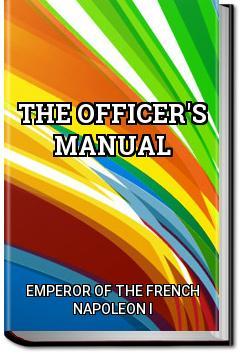UNLIMITED Audiobooks and eBooks
Over 40,000 books & works on all major devices
Get ALL YOU CAN for FREE for 30 days!
The Officer's Manual
Emperor of the French Napoleon I
How does All You Can Books work?
All You Can Books gives you UNLIMITED access to over 40,000 Audiobooks, eBooks, and Foreign Language courses. Download as many audiobooks, ebooks, language audio courses, and language e-workbooks as you want during the FREE trial and it's all yours to keep even if you cancel during the FREE trial. The service works on any major device including computers, smartphones, music players, e-readers, and tablets. You can try the service for FREE for 30 days then it's just $19.99 per month after that. So for the price everyone else charges for just 1 book, we offer you UNLIMITED audio books, e-books and language courses to download and enjoy as you please. No restrictions.
If you desire to beat the enemy’s left with your right wing, or his right with your left wing, the wing with which you attack should be reinforced by the élite of your army. At the same moment, the other wing should avoid battle, and the attacking wing brought rapidly forward, so as to overwhelm the enemy. If the nature of the ground admits, he should be approached by stealth, and attacked before he is on his guard. If any signs of fear are discoverable in the enemy, and which are always to be detected by confusion or disorder in his movements, he should be pursued immediately, without allowing him time to recover himself. It is now the cavalry should be brought into action, and manœuvre so as to surprise and cut off his artillery and baggage.
24
4. The order of march should always be subservient to the order of battle, which las. . . Read More
Try now for FREE!

"Love your service - thanks so much for what you do!"
- Customer Cathryn Mazer
"I did not realize that you would have so many audio books I would enjoy"
- Customer Sharon Morrison
"For all my fellow Audio Book & E-Book regulars:
This is about as close to nirvana as I have found!"
- Twitter post from @bobbyekat



Community Reviews
This is a great version of Napoleon's "Maxims of War." Still the same great advice from one of the world's greatest military theoreticians and practitioners (with illustrating notes drawn from the campaigns of Gustavus Adolphus, Turenne, Frederick, and Napoleon), all while being highly legible, and